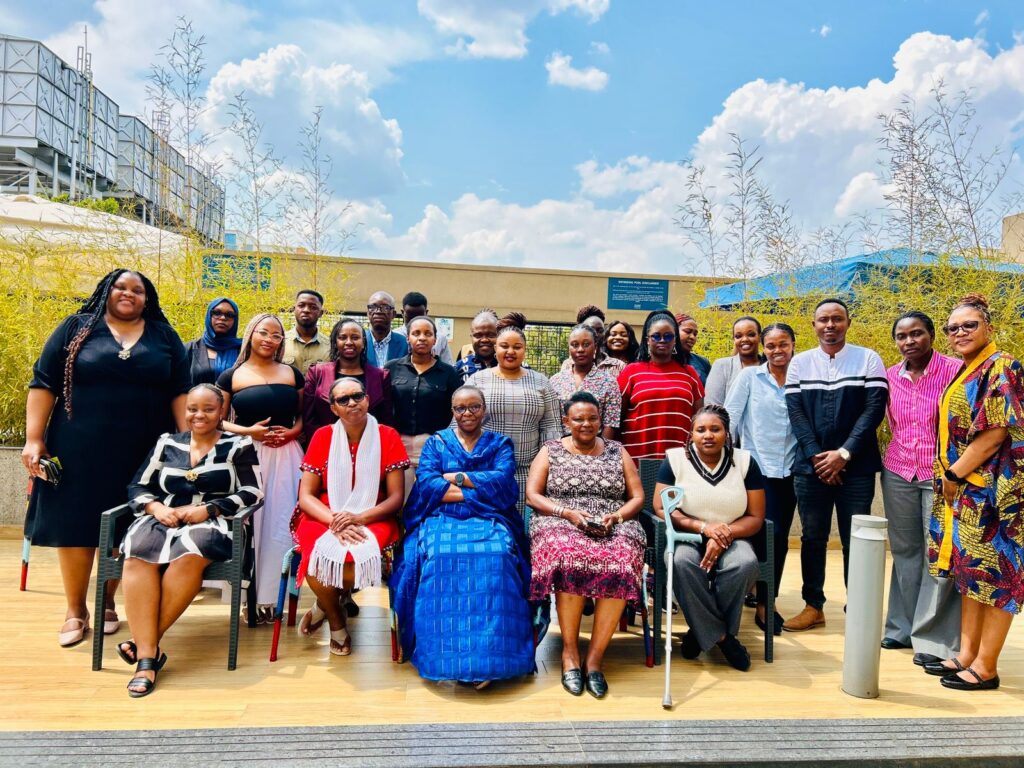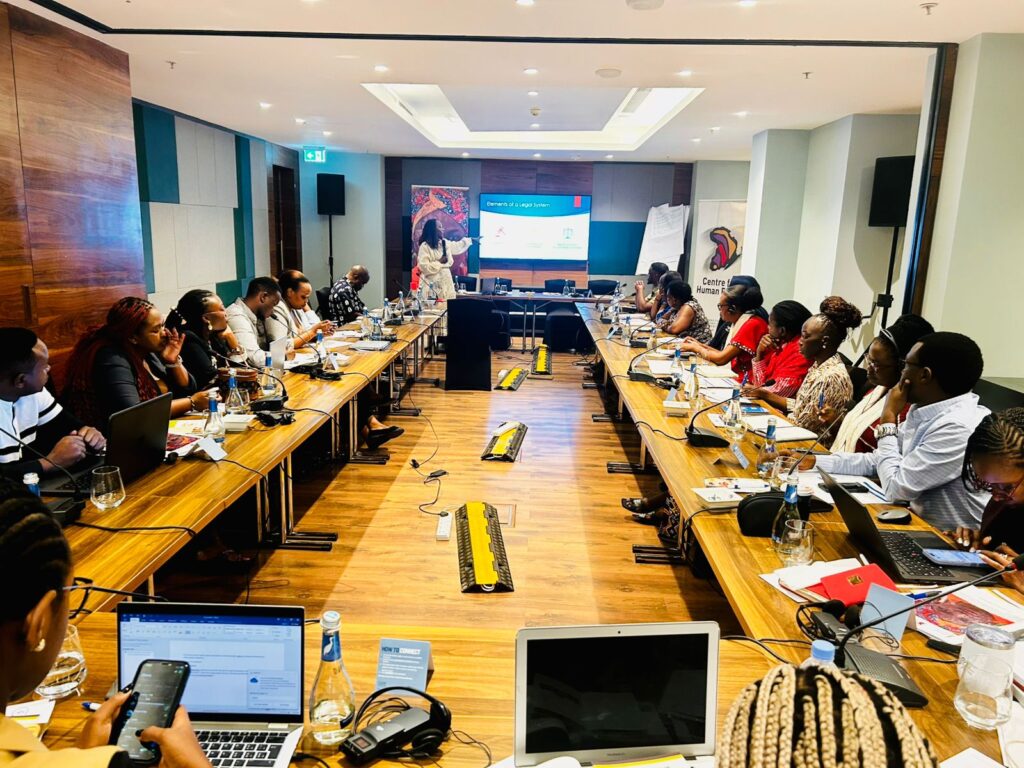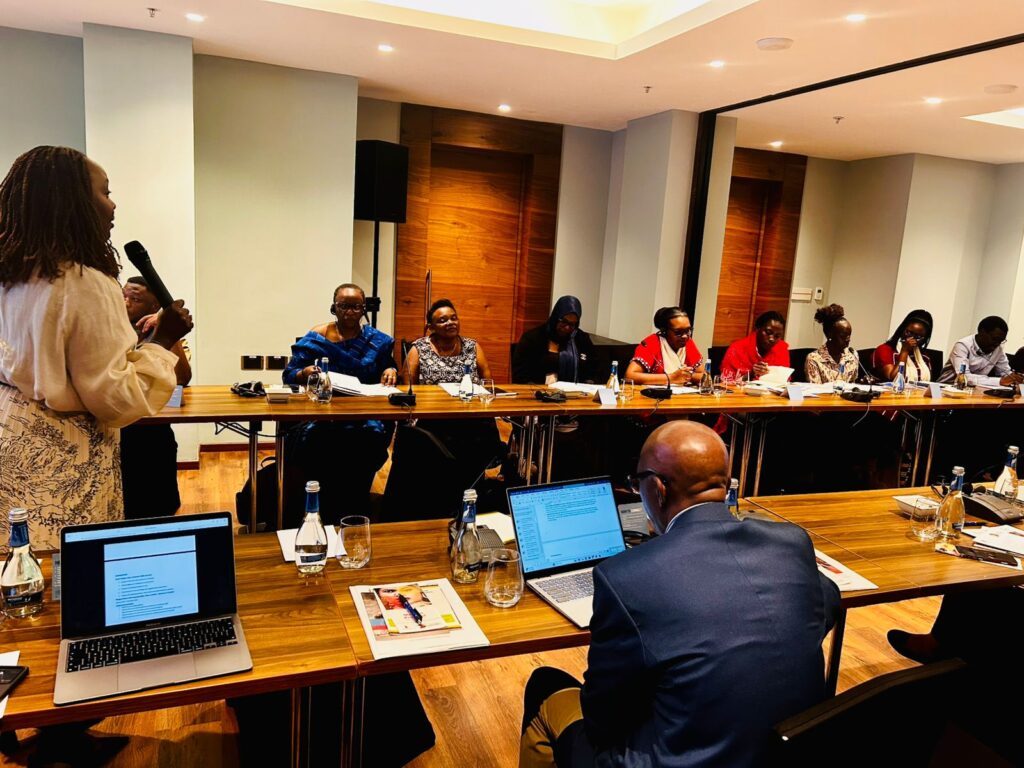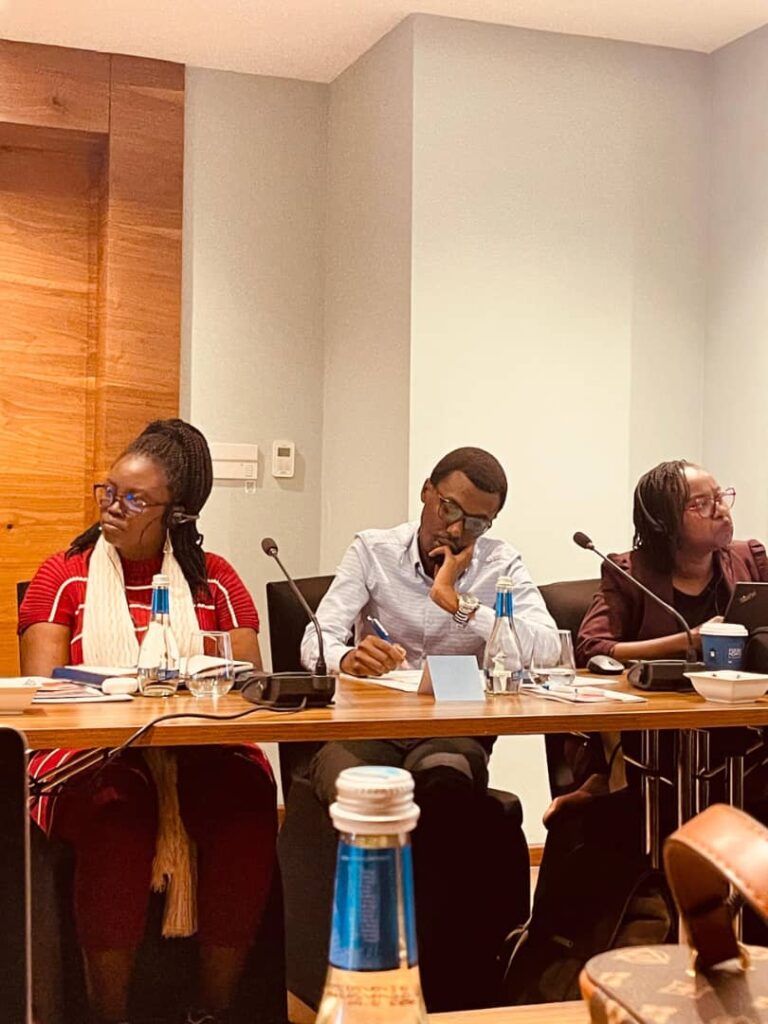
Introduction
Medical Doctors For Choice (MDFC) participated in a 2 day regional workshop organized by the Centre for Human Rights (CHR), University of Pretoria, in partnership with the Great Lakes Initiative for Human Rights and Development (GLIHD). The workshop brought together diverse organizations across Africa to strengthen advocacy on Sexual and Reproductive Health Rights (SRHR) through the effective use of the Maputo Protocol’s General Comments, with a particular focus on Article 14.
Objectives
The workshop Aimed to:
- To strengthen knowledge of the Participants on the General Comments of Article 14 of the Maputo Protocol.
- To provide practical tools for advocacy on Sexual and Reproductive Health Rights (SRHR) in Africa.
- To explore the role of General Comments as advocacy tools in advancing women’s and girls’ rights.
- To examine enforcement strategies for SRHR at national, regional, and continental levels.
Highlights from Sessions

The first day laid the groundwork by deepening participants’ understanding of the African Human Rights system and how it applies to women’s and girls’ rights. Matilda Lasseko from the Centre for Human Rights (CHR) presented on the Human Rights Systems Approach, explaining normative standards, laws, monitoring mechanisms, and enforcement tools. She emphasized the innovative role of the Maputo Protocol in protecting vulnerable women and connecting gender equality to broader development goals.
Dr. Sindiso Nkomo of the University of Pretoria provided an introduction to SRHR, highlighting its centrality to dignity, equality, and sustainable development. He stressed the groundbreaking nature of Article 14 of the Maputo Protocol in addressing critical issues such as HIV, abortion, and access to contraception.
Nyokabi Njogu from the Centre for Reproductive Rights discussed General Comments on HIV and SRHR, illustrating how they clarify state obligations to respect, protect, promote, and fulfill rights. She introduced the AAAQ framework Availability, Accessibility, Acceptability, and Quality: and outlined advocacy tactics including litigation, coalition-building, and public awareness campaigns.
Day 2 highlighted key dimensions of advancing women’s and adolescents’ sexual and reproductive health and rights (SRHR) under the Maputo Protocol. Facilitators outlined state obligations under Article 14, emphasizing duties to respect, protect, promote, and fulfill rights by creating enabling legal frameworks, removing barriers, and ensuring adequate resources. Participants examined the grounds for abortion in Article 14(2), including cases of sexual assault, rape, incest, life or health risks, foetal deformities, and mental distress.

Discussions also covered rights under Article 14, including non-discrimination, freedom from criminalisation when accessing abortion, and the right to benefit from scientific progress. Matilda Lasseko stressed the importance of engaging positive cultural contexts while dismantling harmful norms. Dr. Tom Mulisa (GLIHD) shared lessons from Rwanda’s reform journey: ratification of Maputo Protocol, abortion law reforms, youth empowerment, male engagement, training of health professionals, and use of media advocacy.
Recommendations

Participants Recommended that Maputo Protocol should:
- To Strengthen evidence-based campaigns rooted in Pan-African and Ubuntu values.
- To Build inter-generational dialogue and community-level advocacy.
- To Develop alliances with progressive cultural and religious leaders.
- To Enhance public awareness and media engagement to counter stigma and misinformation.
- To Promote accountability through litigation, monitoring, and reporting
Takeaway
Advocacy must go beyond raising voices to turning evidence into concrete legal and policy reforms, ensuring women and girls across Africa can enjoy their rights with dignity, equality, and justice.
Conclusion
The two days workshop successfully deepened understanding of the Maputo Protocol’s Article 14 and its General Comments as powerful advocacy tools. Participants left with strengthened capacity to engage with legal frameworks, design effective advocacy campaigns, and confront cultural and political challenges.
